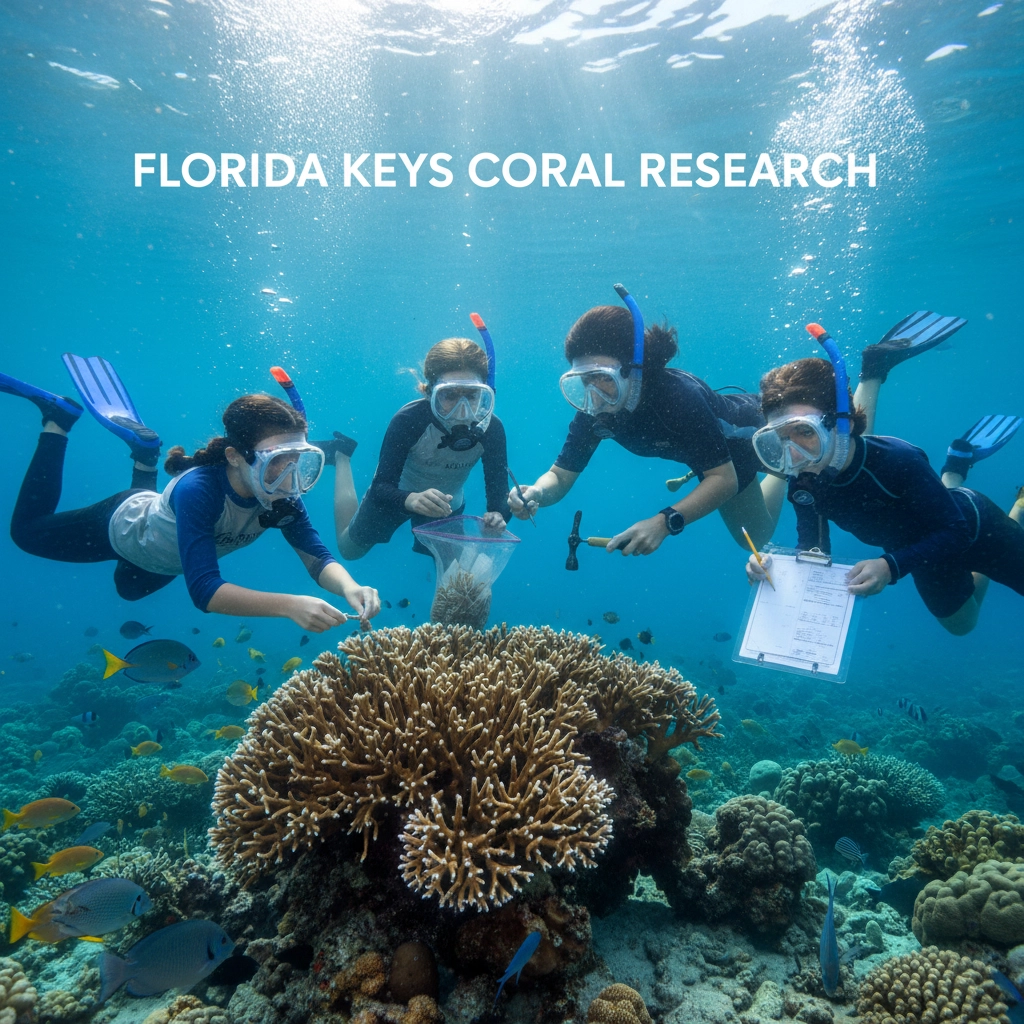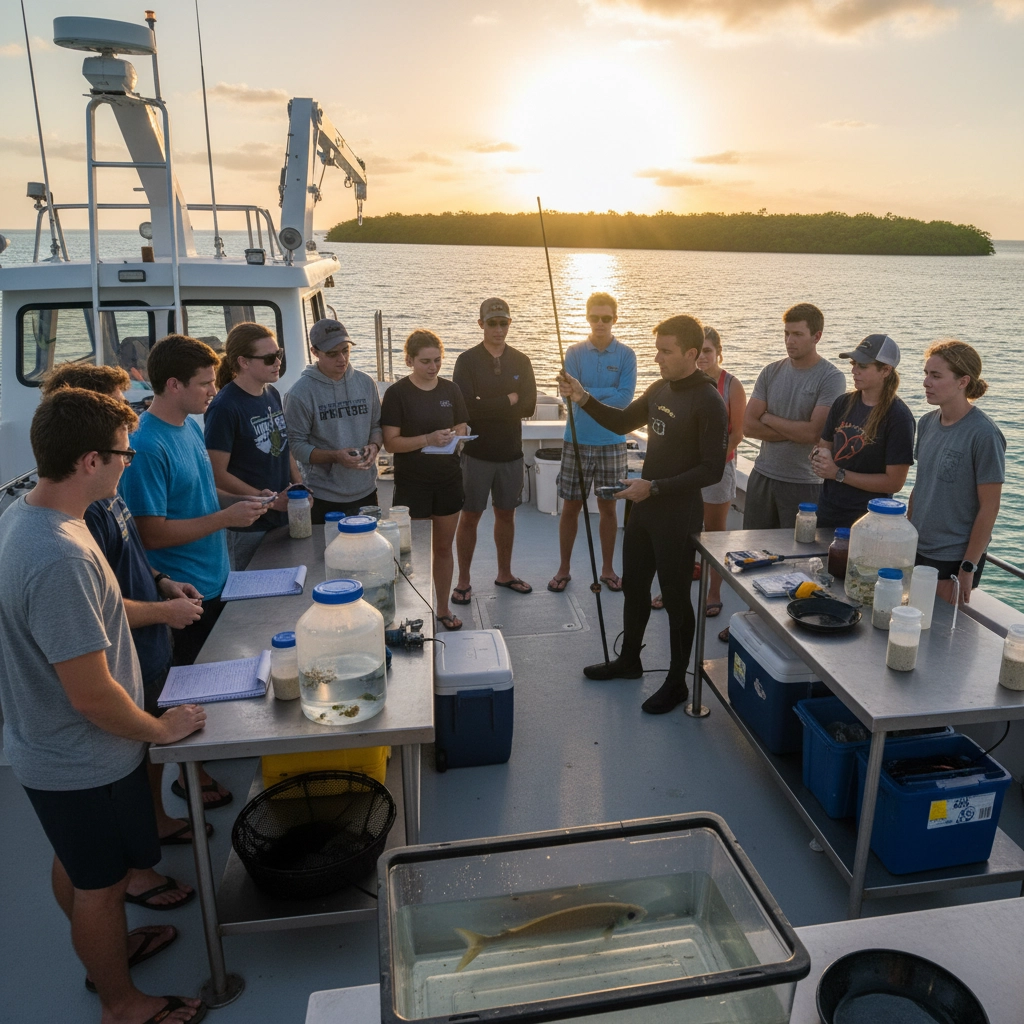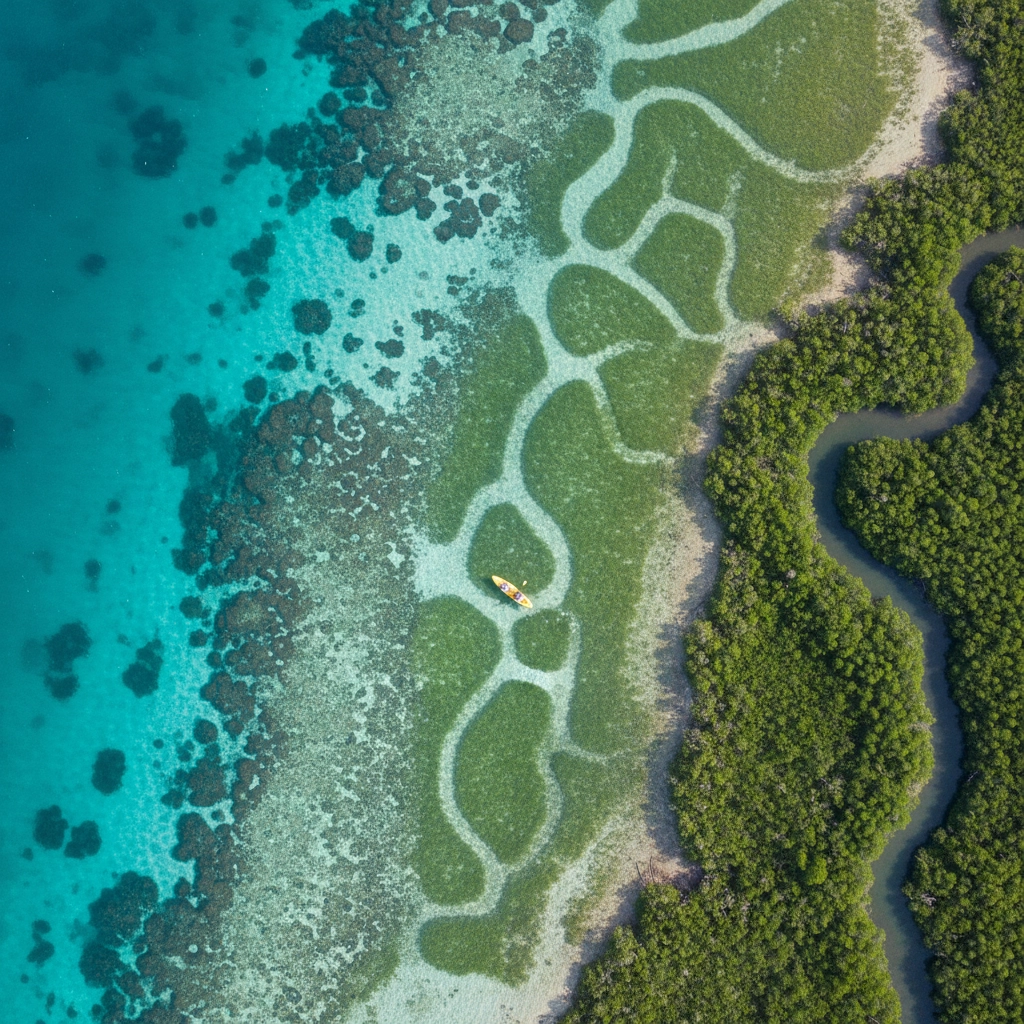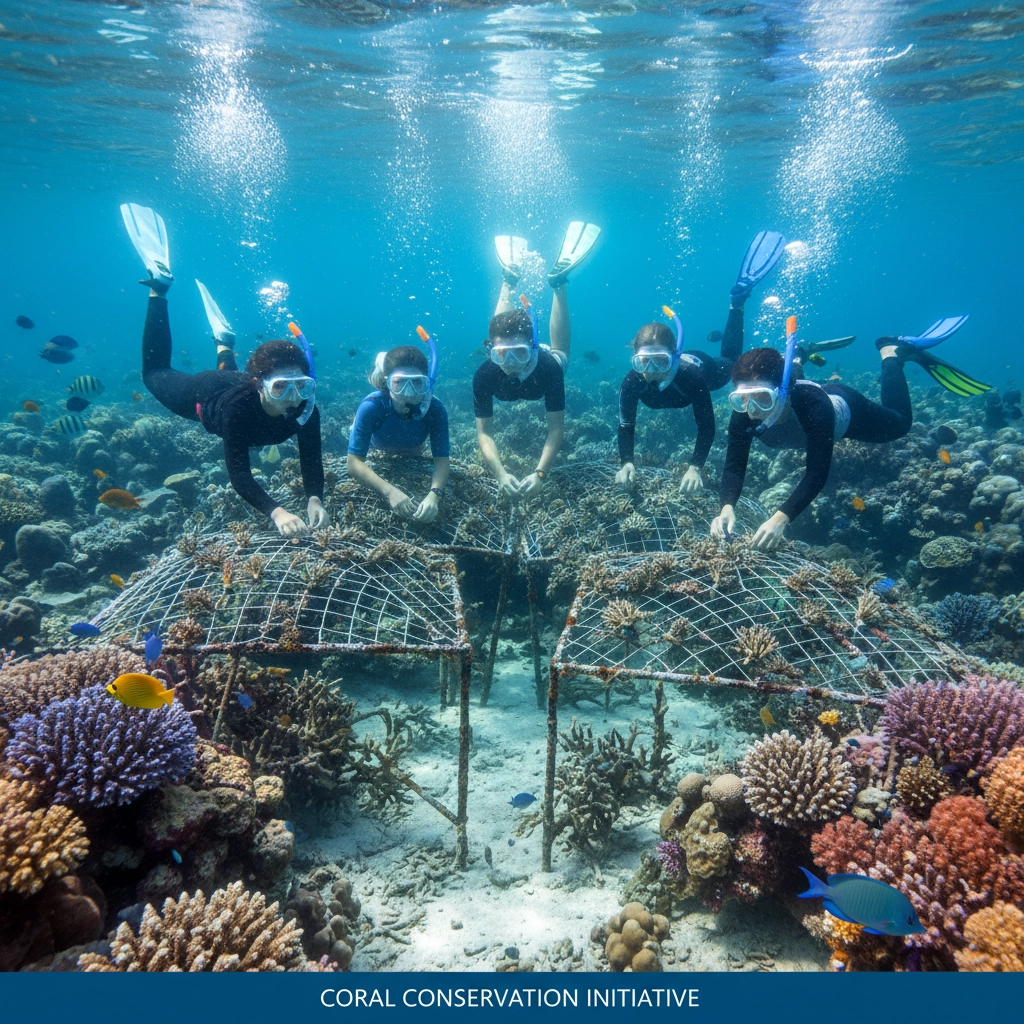Are Marine Science Expeditions Worth It? 7 Reasons Florida Keys School Trips Create Lifelong Scientists
- Caleb Mullenix
- Nov 2, 2025
- 5 min read
Educational leaders seeking transformative experiences for their students must carefully evaluate the substantial investment required for marine science expeditions. The Florida Keys represent one of the most compelling destinations for authentic scientific learning, offering unparalleled access to diverse marine ecosystems and world-class research facilities. Understanding the specific benefits these expeditions provide ensures educators make informed decisions that maximize student outcomes and justify program costs.
Marine science expeditions in the Florida Keys deliver measurable educational value that extends far beyond traditional classroom instruction. These immersive experiences create lasting scientific interest, develop critical thinking skills, and establish environmental stewardship principles that influence students throughout their academic careers and professional lives.
1. Students Engage in Authentic Scientific Research
Marine science expeditions in the Florida Keys provide students with direct participation in legitimate scientific research conducted by professional marine biologists. Rather than observing science from textbooks, students contribute meaningfully to ongoing research projects through partnerships with renowned institutions including Mote Marine Lab and the ANGARI Foundation.
Students participate in coral restoration techniques, marine animal behavior studies, and water quality monitoring programs that generate real scientific data. These hands-on research opportunities include baited remote underwater video surveys, shark tagging procedures, and specimen collection activities that teach proper scientific methodology while contributing to conservation databases.

The authenticity of these research experiences distinguishes marine expeditions from simulated laboratory activities. Students understand that their data collection efforts support actual conservation initiatives, creating a powerful connection between academic learning and real-world impact. This direct research participation develops scientific thinking processes that cannot be replicated in traditional classroom settings.
2. Access to World-Class Marine Science Facilities and Expert Mentorship
Florida Keys marine science expeditions connect students directly with active researchers and conservation professionals who serve as mentors and career guides. These interactions provide invaluable exposure to scientific careers while demonstrating the practical applications of marine science education.
Students work alongside marine biologists at established research centers, observing daily research operations and understanding how scientific knowledge translates into meaningful conservation work. Educators leading these programs actively discuss their research projects, grant writing processes, and career pathways, providing realistic perspectives on scientific professions.
The mentorship component proves particularly valuable for career exploration, as students witness the diverse opportunities available within marine science fields. These personal connections with working scientists inspire continued interest in STEM disciplines and provide networking opportunities that support future academic pursuits.
3. Immersion in Complex Marine Ecosystem Interactions
The Florida Keys provide access to three distinct marine ecosystems: coral reefs, seagrass beds, and mangrove forests: all within a single geographic location. This ecosystem diversity enables comprehensive study of habitat connectivity and species migration patterns impossible to observe in landlocked educational settings.
Students kayak through mangrove waterways to observe tree crabs and upside-down jellyfish, snorkel at living coral reefs to understand symbiotic relationships, and explore seagrass meadows to document marine biodiversity. These direct observations develop sophisticated understanding of ecological interconnections and environmental complexity.

The ability to study multiple marine habitats during a single expedition demonstrates ecosystem connectivity principles that are difficult to convey through classroom instruction alone. Students develop systems thinking skills by observing how species move between habitats, how environmental changes affect multiple ecosystems simultaneously, and how human activities impact interconnected marine communities.
4. Direct Participation in Conservation Action
Marine science expeditions transform students from passive learners into active conservation participants. Students engage with the world's largest reef restoration initiatives, participate in beach cleanup activities, and contribute to marine debris monitoring programs that produce immediate, observable results.
These conservation activities address critical environmental topics including ocean acidification, coral bleaching, and the role of apex predators in maintaining ecosystem balance. Students working with sea turtle rehabilitation programs witness conservation efforts firsthand while understanding the direct consequences of human activities on marine wildlife.
The hands-on conservation work creates emotional investment in environmental protection that extends beyond the expedition experience. Students who participate in coral restoration, marine animal rescue, and habitat protection develop lasting commitment to environmental stewardship that influences their future academic choices and career decisions.
5. Development of Essential STEM Skills and Scientific Confidence
Marine expeditions build technical competencies and collaborative skills that transfer across academic disciplines. Students develop STEM capabilities through data collection, analysis, and presentation while simultaneously building teamwork, communication, and leadership skills in scientific contexts.
These experiences demonstrate the nature and practice of science by showing how scientists actually work, think, and collaborate rather than simply teaching isolated scientific facts. Students learn proper sampling techniques, data recording procedures, and hypothesis testing methods through direct application in marine research settings.

The problem-solving and critical thinking skills developed through field research create scientific confidence that supports continued STEM engagement. Students who successfully contribute to marine research projects understand their capacity for scientific work and are more likely to pursue advanced science courses and scientific careers.
6. Real-World Application of Classroom Concepts
Marine science expeditions create tangible connections between academic content and observable environmental phenomena. When students collect data for citizen science initiatives, they experience the direct relationship between classroom learning and environmental outcomes that affect local communities and global ecosystems.
Snorkeling expeditions at Sombrero Reef, airboat rides through Everglades waterways, and underwater photography sessions transform abstract biological concepts into visceral, memorable experiences that solidify academic learning. These immersive activities make marine biology, chemistry, and environmental science personally relevant and emotionally significant.
The experiential learning component ensures long-term retention of scientific concepts while demonstrating practical applications of academic knowledge. Students who observe marine organisms in their natural habitats, test water quality parameters, and document species diversity develop comprehensive understanding that supports advanced academic work.
7. Foundation for Lifelong Environmental Stewardship
Marine science expeditions cultivate lasting environmental values and scientific identity that influence students throughout their lives. Students who participate in authentic research, witness conservation efforts, and develop personal connections with scientists internalize responsibility for protecting marine ecosystems.
These expeditions create informed citizens who understand the interconnection between ecological health and human prosperity. The Florida Keys National Marine Sanctuary contributes $4.4 billion annually to Florida's economy while supporting thousands of marine species, demonstrating the practical importance of environmental protection.
Students graduate from these programs with sophisticated understanding of systems thinking, environmental science, and conservation principles that extend throughout their academic careers and professional lives. The scientific literacy and environmental awareness developed through marine expeditions prepare students to address complex environmental challenges facing their communities and the global environment.
Ensuring Maximum Educational Value
Successful marine science expeditions require careful planning, qualified supervision, and clear learning objectives that maximize student outcomes while ensuring safety and educational value. Educators must establish specific goals, prepare students with background knowledge, and create assessment strategies that document learning gains and program effectiveness.

Consider partnering with Appleseed Expeditions to access professionally designed marine science programs that deliver authentic research experiences while maintaining the highest safety standards. These expertly crafted expeditions provide the structure, mentorship, and educational resources necessary to create transformative learning experiences that inspire lifelong scientific interest and environmental stewardship.
Marine science expeditions in the Florida Keys represent strategic investments in student futures, environmental literacy, and scientific education that create measurable benefits extending far beyond traditional academic metrics. The authentic research opportunities, expert mentorship, and conservation experiences provided by these programs establish foundations for scientific careers and environmental leadership that serve students throughout their lives.



Comments